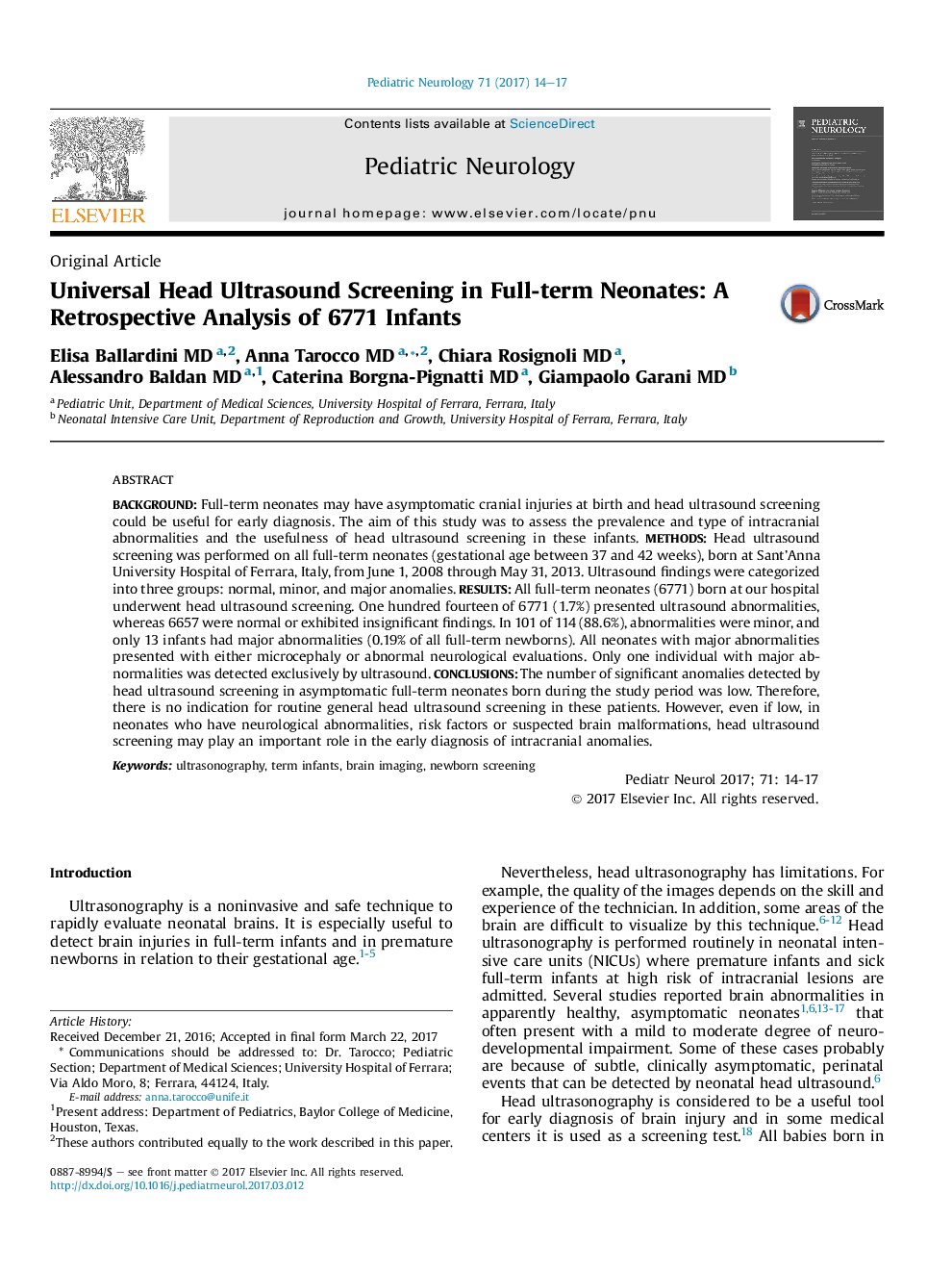| Article ID | Journal | Published Year | Pages | File Type |
|---|---|---|---|---|
| 5632823 | Pediatric Neurology | 2017 | 4 Pages |
BackgroundFull-term neonates may have asymptomatic cranial injuries at birth and head ultrasound screening could be useful for early diagnosis. The aim of this study was to assess the prevalence and type of intracranial abnormalities and the usefulness of head ultrasound screening in these infants.MethodsHead ultrasound screening was performed on all full-term neonates (gestational age between 37 and 42 weeks), born at Sant'Anna University Hospital of Ferrara, Italy, from June 1, 2008 through May 31, 2013. Ultrasound findings were categorized into three groups: normal, minor, and major anomalies.ResultsAll full-term neonates (6771) born at our hospital underwent head ultrasound screening. One hundred fourteen of 6771 (1.7%) presented ultrasound abnormalities, whereas 6657 were normal or exhibited insignificant findings. In 101 of 114 (88.6%), abnormalities were minor, and only 13 infants had major abnormalities (0.19% of all full-term newborns). All neonates with major abnormalities presented with either microcephaly or abnormal neurological evaluations. Only one individual with major abnormalities was detected exclusively by ultrasound.ConclusionsThe number of significant anomalies detected by head ultrasound screening in asymptomatic full-term neonates born during the study period was low. Therefore, there is no indication for routine general head ultrasound screening in these patients. However, even if low, in neonates who have neurological abnormalities, risk factors or suspected brain malformations, head ultrasound screening may play an important role in the early diagnosis of intracranial anomalies.
